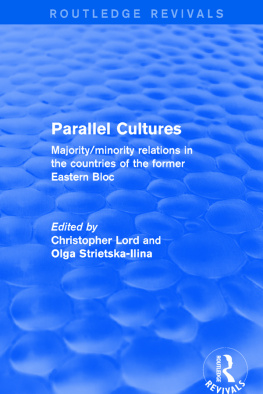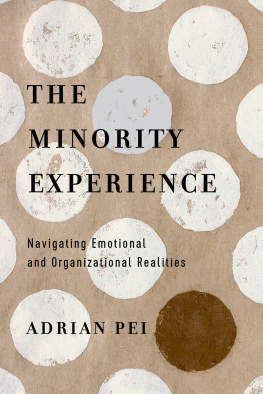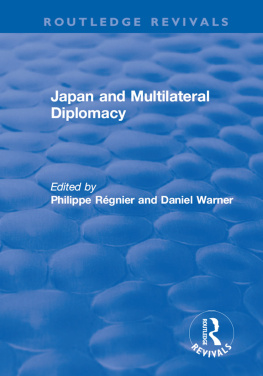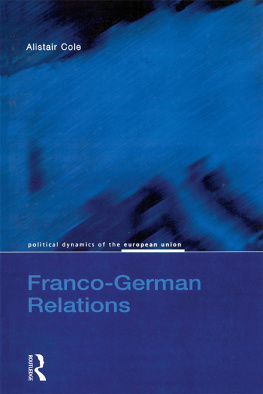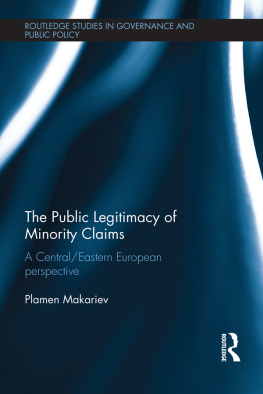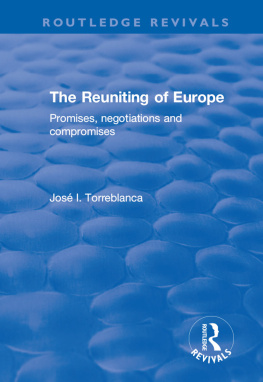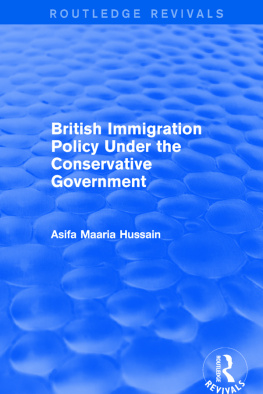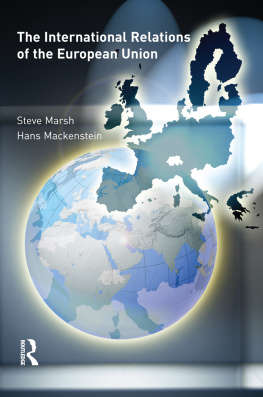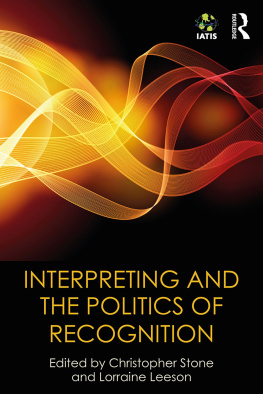PARALLEL CULTURES
Parallel Cultures
Majority/minority relations in the countries of the former Eastern Bloc
Edited by
CHRISTOPHER LORD and OLGA STRIETSKA-ILINA
First published 2001 by Ashgate Publishing
Reissued 2018 by Routledge
2 Park Square, Milton Park, Abingdon, Oxon OX14 4RN
711 Third Avenue, New York, NY 10017, USA
Routledge is an imprint of the Taylor & Francis Group, an informa business
Copyright Christopher Lord and Olga Strietska-Ilina 2001
All rights reserved. No part of this book may be reprinted or reproduced or utilised in any form or by any electronic, mechanical, or other means, now known or hereafter invented, including photocopying and recording, or in any information storage or retrieval system, without permission in writing from the publishers.
Notice:
Product or corporate names may be trademarks or registered trademarks, and are used only for identification and explanation without intent to infringe.
Publishers Note
The publisher has gone to great lengths to ensure the quality of this reprint but points out that some imperfections in the original copies may be apparent.
Disclaimer
The publisher has made every effort to trace copyright holders and welcomes correspondence from those they have been unable to contact.
A Library of Congress record exists under LC control number: 2001086757
ISBN 13: 978-1-138-72621-5 (hbk)
ISBN 13: 978-1-315-19151-5 (ebk)
Contents
Christopher Lord
Gavril Flora
Madeleine Danova
Kirill Shevchenko
Kateryna Stadnik
Quo Vadis?
The Case of Russia
Olga Strietska-Ilina
SIR PETER USTINOV
As the world continues to exist, and even slightly improve its health, like a permanently convalescent patient it is afflicted by an endless variety of obscure but threatening illnesses; and so, like a single invalid, it is subject to relapses. At the very moment when we were entitled to think that we had outlived, at last, the virus of bigotry and conventional imperialism with the creation of an interdependent Europe, a rash of conflicts broke out, culminating in bloodless independence in some places, in wasteful and inhuman warfare in others. Lunatic theories like that of ethnic cleansing captured the vulnerable imagination of some, while others, seized with an obsolete idea of self-determination, ended up with an independence entailing no more than a national flag, an undistinguished anthem, and a valueless currency. In many cases, people had been more independent before independence.
Well, every sickness demands that we find an antidote. In Prague, I chanced across a group of younger scholars from many parts of Eastern Europe and especially from the new states of the former Soviet Union, eager to explore what they call Parallel Cultures. The very title given to their work is a mark of respect for the unfamiliar and even for the seemingly uncouth. Among these people is a remarkable fellow called Christopher Lord, who, far from coming from the landlocked cultures of the Slays, is a highly untypical, and indeed uninsular product of Britain. I have had the privilege of hearing his highly individual music, and can say that his interests are extremely wide, ranging from a passion for the musical modes of the Orthodox Church to the fate of the Eastern European Gypsies, not only in the Camps of Death, but also in the face of the state-of-the-art indifference of today. This diversity of interests is nothing to be derided. I suffer from it myself. On my seventieth birthday, I told my children that, at my age, I would soon have to decide what to do with my life. My son, with a wisdom not usually associated with middle age, agreed, but added, Dont hurry!
I can only highly recommend a book which is not only thought-provoking and valuable, but is also a reaction on behalf of the human imagination, common sense, and generosity of spirit to the many manifestations of retrogressive thinking still prevalent today.
Vaud, Switzerland
Madeleine Danova is a Senior Assistant Professor at Kliment Ohridsky University, Sofia, Bulgaria.
Gavril Flora is a lecturer in Sociology at the Christian University of Partium, Romania.
Christopher Lord is a lecturer at the Philosophy Faculty of Charles University, Prague, Czech Republic.
Kirill Shevchenko is a lecturer in Russian History at Moscow University of the Humanities.
Kateryna Stadnik is Head of the Sociological Service at the Centre for Political Studies, Donetsk, Ukraine.
Olga Strietska-Ilina is Head of the Analytical Section, National Training Fund, Prague.
The idea for this book first arose during a series of lectures and seminars on minority issues that were held in Prague at Charles University, and at the now-vanished Prague Centre of the Central European University between 1992 and 1995. After much discussion, the authors decided to undertake a study which would present a picture of minority cultures in the former Eastern Bloc, not by an exhaustive study of all such minorities (something that would have required a huge project) but by a series of carefully-chosen representative studies, so that the main types of minority population religious, linguistic, political and so on should be dealt with. There are still some important gaps. Our focus has been mainly European, and so large areas of the former USSR are not really addressed; but we hope that the reader will find not just useful studies of particular societies, but an organized whole. However, this does not mean that a uniform methodology or conceptual framework has been applied. Approaches to the study of nationalities and national minorities are as varied as the objects of study themselves, and each author has therefore made a separate (but again, complementary, we hope) approach to his or her subject.
The studies in this volume were supported by a collective research grant from the Research Support Scheme, for which we express our gratitude both to the RSS committee and staff and to Mr George Soros. We are also very grateful to Sir Peter Ustinov for his magnanimity in taking an interest in our project.
Olga Strietska-Ilina
Christopher Lord
CHRISTOPHER LORD1
I. The Problem
The history of Europe can be interpreted from two points of view: as the history of Christianity, and as the history of the European states. These two points of view are not mutually exclusive: the European states have until recently also represented themselves as Christian bodies, and so the two histories can form an organic whole. At moments of great crisis the Reformation is the obvious example the link between the political and the spiritual appears at the surface of events, but in the normal run of things these two histories of Europe would seem to go at different speeds. If we take the long view, the religious history, with its deep changes in morality and cosmology, would seem to have the profounder effect on the life of people (and not just religious people; we are all religious, in the sense that we accept moral and cosmological traditions that have no other basis or claim to legitimacy than their historical acceptance by various organised religions; and we can also argue, following Weber, that modern social structures such as capitalism have themselves been produced through a transformation of religion); but at the beginning of the twenty-first century, we are biased in the other direction, and will tend to give the greater importance in our histories of the past to the kind of questions which present themselves to us in everyday life today: questions of politics, and of national politics in particular.

